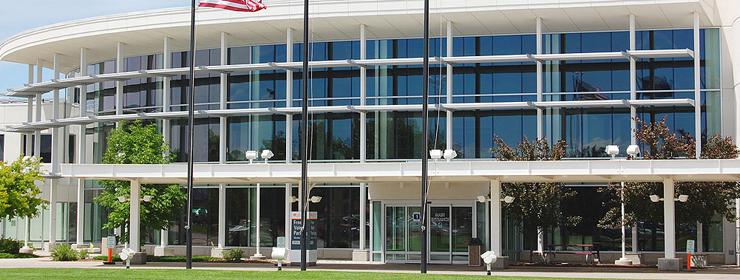
Regional West Medical Center Urges Citizens To “Know Their Prescriptions"
SCOTTSBLUFF, Neb., – November 25: “I take a little blue pill in the morning and a big white one at night. I also take a yellow one and a pink one, but I’m not sure which pill is for what.” Does this sound like something you would say? The response is all too familiar with medical professionals across the nation and can lead to serious health consequences for patients who fail to know their medications by name.
“One of the biggest issues we face in the hospital setting is patients who generally have a limited understanding of which medications they are taking and why they are taking them,” Sue Martin, MS, RN, CS, FNP, Regional West Medical Center clinical nurse specialist, said. “We admit patients to the hospital every day who cannot list their medications.”
Because it is vital that people get the medications they need during their stay at the hospital, nurses spend a great amount of time placing dozens of phone calls to doctor’s offices and community pharmacies trying to determine which medications and what dose of the medication a patient has been prescribed.
“Often, we run into a situation where a patient, quite by accident, fails to mention that they use two separate pharmacies, so we end up having record of one medication but never knowing about the second medication,” said Martin. In many cases, patients are seeing more than one physician for various medical conditions, so it requires a good deal of investigation to make sure the medication puzzle is complete and correct for each patient, said Martin.
All of this investigation is important to the patients we serve because it helps prevent medication interaction, unnecessary medication reactions and side affects that could be brought on by improper or duplicate dosage, said Martin.
“So many times, people assume that the hospital already knows everything about their medical background, especially local residents,” said Martin. The reality is that many hospital and clinic computer health information management systems are different, so information is not always easily shared. In addition, the federal Health Information Portability and Accountability Act specifies that medical information can only be released on a need to know basis. This means that the hospitals aren’t always sent patient information automatically.
“Because hospitals don’t always have access to the most complete and current medication list on file, it is in every patient’s best interest to have a written list of their medications, the dosages, reasons for taking the medication, how many times a day the medications are to be taken, what doctor wrote the prescription and what date the person started taking the medication.
It is recommended that copies of the completed list be kept current and in a wallet, purse, glove box and hanging on the refrigerator.
“People never know when they could be in a situation where they cannot verbalize what medications they are taking,” said Martin. Emergency medical technicians (EMTs) and paramedics are formally trained to look on a person’s refrigerator or in the previously mentioned locations if a person is found unconscious and unable to communicate their current medications.
“At Regional West, patient safety is always our highest concern, said Martin. “We have found that when hospitals and patients communicate well, patient care and safety is greatly improved. A patient’s knowledge of their current medication list is a valuable tool in ensuring that their health care experience has the best outcome possible. ”
Regional West Health Services, with over 1,300 employees, provides comprehensive and innovative health care services for the people and communities of western Nebraska and the neighboring states of Colorado, South Dakota and Wyoming. With over 110 active physicians, 95 percent of whom are board certified or board eligible, plus an additional 25 consulting specialists, we offer care that spans more than 40 medical specialties. Regional West Medical Center, a subsidiary of Regional West Health Services, is accredited by the Joint Commission on Accreditation of Healthcare Organizations and is one of only three Level II Trauma Centers in the state of Nebraska.